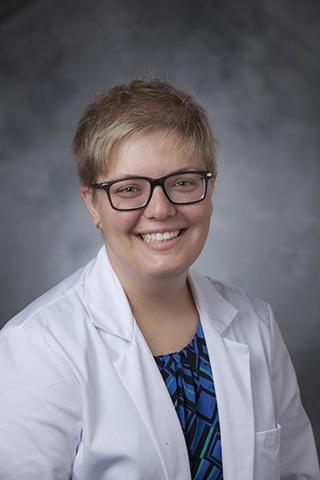"The Perfect Consult"
As family medicine residents, we have the unique opportunity to rotate and work with a wide array of specialists. This is akin to the clinical rotations that medical students go through, though the experience is a bit different given you take more onus for patient care. Additionally, there is less drive to impress people and get a “good grade,” so you see things through a slightly different lens.
For the majority of my rotations, I have enjoyed working with my specialty colleagues and have learned a lot — a tidbit here and there that will allow me to practice full scope, evidence-based family medicine. However, there is one trend that I have noticed and continue to run into: the “talking down” about other specialties. I have yet to be on a rotation where I haven’t heard some variation of the following stereotypes, paraphrased:
- “Psychiatrist aren’t real doctors – all they do is push drugs and don’t actually care about their patients.”
- “All surgeons think about is cutting, and once they’re done, shove patients to another team. I mean, can they even manage blood pressure?”
- “Emergency doctors don’t use their brains and place consults for everything. It’s all about transferring a patient to another service as fast as possible.”
- “I can’t believe the primary care doctor didn’t notice this before. Honestly, I’m not surprised. Family medicine doctors are stupid and couldn’t get into another specialty."
The culture of incivility is quite prevailing, and it intrigues me how quickly and easily doctors dismiss the expertise of their colleagues, and also how quickly they can judge the people requesting the consults they are asked to do, not seeing the flip side that the consults they place in the system could be judged by others, as well.
Medicine, at its core, is interdisciplinary and can only best be done when the entire team communicates and works effectively together. When people consult your team, they are honoring your expertise by asking for your help. They believe you can add something to the care of the patient and give a different perspective or level of expertise.
 This cartoon, courtesy of 'The Underwear Drawer" blog, was shared with me during medical school and has been floating around for some time. At first sight, it is a funny and seemingly innocent cartoon. However, I now wonder how many of the stereotypes — whether personality-based or knowledge-based — we find “funny” during medical school may actually result in harm and decrease our ability to see the unique perspectives, knowledge and skill sets that our colleagues bring to the table.
This cartoon, courtesy of 'The Underwear Drawer" blog, was shared with me during medical school and has been floating around for some time. At first sight, it is a funny and seemingly innocent cartoon. However, I now wonder how many of the stereotypes — whether personality-based or knowledge-based — we find “funny” during medical school may actually result in harm and decrease our ability to see the unique perspectives, knowledge and skill sets that our colleagues bring to the table.
After all, we each chose the specialty we are practicing because there is something about it we love: the technical skill set, the associated cognitive complexities, the patient relationship and trust, or a combination of all of these. Every consult provides an opportunity to impart a piece of your specialty to a colleague that may not understand what you do on a daily basis. We all serve a purpose in delivering the highest quality care to the patients who entrust us with their health. We need to stop degrading other health care providers and work to create a consult system that benefits our patients and that acknowledges the unique value and expertise that each health care provider brings to this endeavor.
Jessica Lapinski is a third-year resident with the Duke Family Medicine Residency Program. Email jessica.lapinski@duke.edu with questions.
Editor’s note: Duke Family Medicine residents guest blog every month. Blogs represent the opinion of the author, not the Duke Family Medicine Residency Program, the Department of Family Medicine and Community Health, or Duke University.
